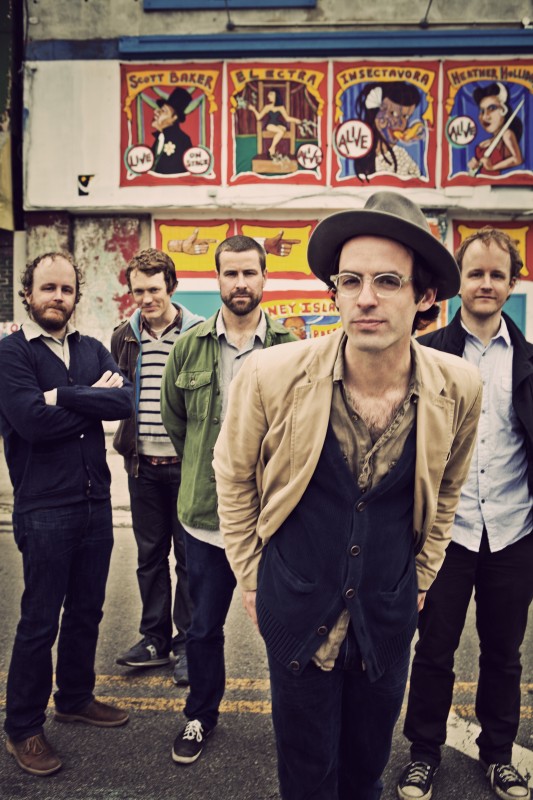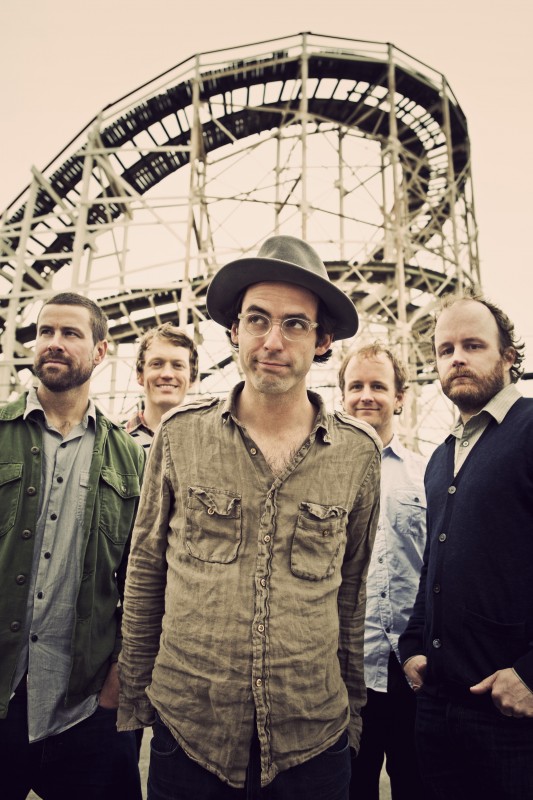Clap Your Hands Say Yeah
Fault spoke with Lee Sargent and Sean Greenhalgh

What individually did you get up to during the band’s hiatus?
L: I haven’t really been doing a lot… nah just kiddin, I do freelance web development and I’ve been working on soundtrack stuff to very low budget films. That all started about five years ago when my brother and I penned some stuff for a film called Woodpecker, directed by Alex Karpovsky, alongside a mutual friend of ours called James Lavino and also Colin Greenwood. We’re currently working with the same composer on another project, as yet untitled.
How does writing music outside of the band context compare?
L: It’s fantastic!! (Sean retorts ) But it’s also completely different. Essentially it provides an opportunity to completely remove yourself from the music because it’s not about you at all, it has to mesh with the mood. I’m also working on a project with another filmmaker, a documentary on taxidermy. The trailer is all about pet preservation, not really being able to let go of the cat – which is a kinda creepy subject. I had to put music to that, which is the sort of flavour which… I hadn’t really done before
You each seem to be involved in various side projects, how much of that really comes into CYHSY?
S: Even if it doesn’t always affect it explicitly, at least it makes you appreciate the people that you sometimes take for granted. Without denigrating any collaborators, I think there’s just a natural chemistry that we have as a band. So if you manage to put us in a room together for long enough we’ll come out with an album.
When did the song-writing process begin on this new record and how collective and endeavor was it?
S: This time around it was a nine-month process, but perhaps it began before that, for instance the closing track, Adam’s Plane dates from about three years ago. As far as the approach, this record was a lot more collaborative than the previous, it was very much that everyone was involved and everyone had a say in the direction that things were taking. There were certainly battles lost and battles won but I think ultimately we’re all happy with the outcome, for sure.
CYHSY have quite a rare predicament, that of not becoming too polished or pristine. Is that a fair assessment and do you consciously address this issue?
L: Not so much a conscious concerted effort, but the idea on this record was to keep the energy level and the general performance level of the songs as something that sounds live, which means we don’t overkill with hundreds of takes.
Still Hysterical feels more integrated and less helter-skelter than the previous records. How do you explain this?
L: You mean the feeling that these tracks belong together? That has a lot to do with the process of choosing a producer and working alongside him and making sure that he’s enthusiastic about the project throughout. John [Congleton] certainly had his ideas of how this thing should sound, and bringing an outsider’s outlook into the mix gives us further scope, can refine and shape the end result so that hopefully it sounds like a complete package.
Are tracks like Maniac, Hysterical and Idiot based around particular narratives or characters?
S: I have my theories… but they may be crackpot theories! You can take them a lot of different ways. You can take them as stories about people’s lives or about the times and what is happening globally. That’s how I personally read those three in particular. But actually what’s great and accessible about this set of songs is that you can project whatever you want onto these lyrics.
On the record Misspent Youth and Adam’s Plane both stand out as poignant and personal moments. What inspired your focus on accidents?
S: I don’t want to psychoanalyse Alec, but there’s definitely something to that, I think that’s a pretty good observation.
L: Those are two of my personal favourites…
Had you had any label attention before self-releasing the debut, and had you anticipated the interest that arose?
L: No, no, essentially that was just a bunch of songs, we went into the studio in late 2004 to record some demos, and then it just became a full length and everything from there went by very quickly
Satan Said Dance is quite a bizarre track, had it been conceived as such or did it just evolve into this jamboree? Could you see yourselves taking that direction further?
S: That one has evolved a lot, two or three times during its life because we were playing it from the start, as soon as I learnt how to hit the disco beat. An aspect of the craziness on Some Loud Thunder, everybody just literally throwing stuff at the wall, some of it stuck, some did not. And it keeps on changing, the arrangement is in constant flux. Right now that’s definitely a high point in our live set, and I’d love to do something like that again, without treading repetitive territory.
Pleased to be back on the road?
S: It’s very strange. Having been off for a couple of years and then jumping back into it all, it’s like being out at sea in a way. This tour has been surprising leisurely, meandering around different cities and taking it all in, that’s been my approach this time.
Any musical recommendations?
S: Kurt Vile. I wasn’t aware of him until recently, which is pretty stupid because he sounds like he’s been influenced by all of my top artists, yet with a really singular voice. You should check it out, Kurt Vile and the Violators.
